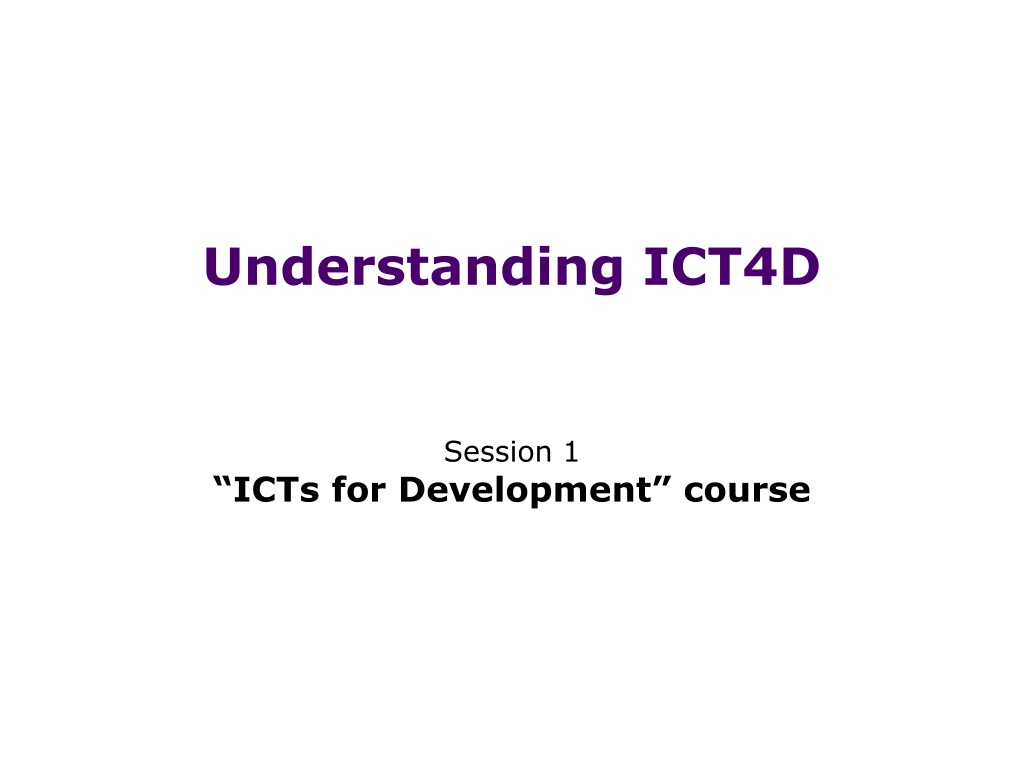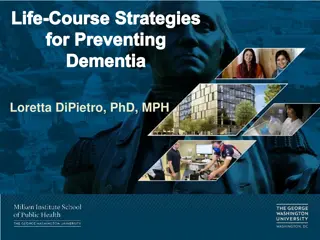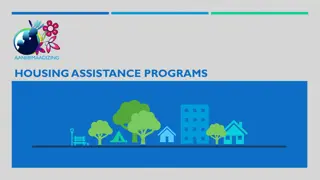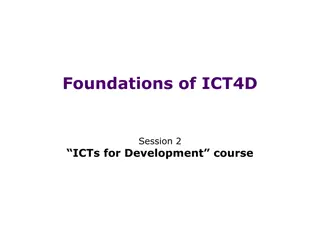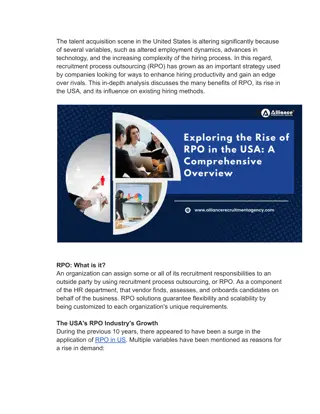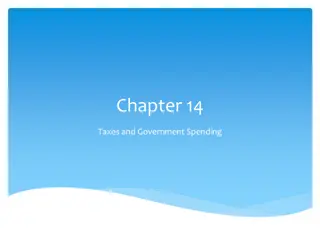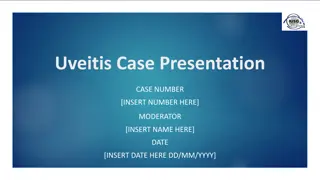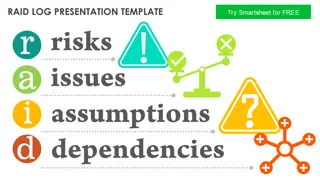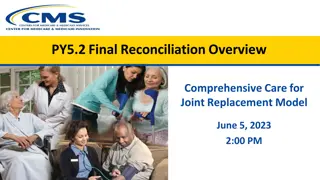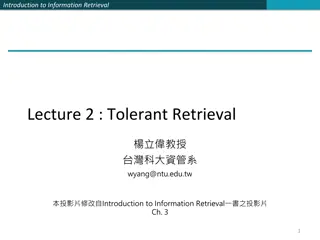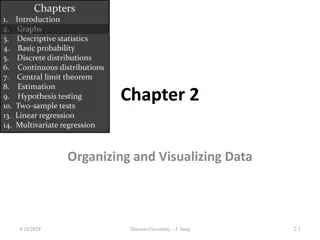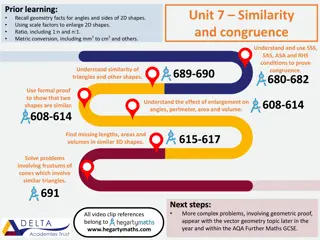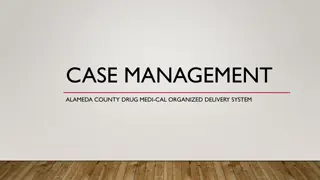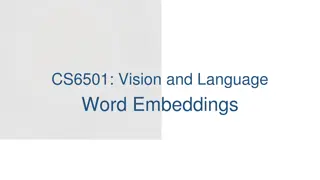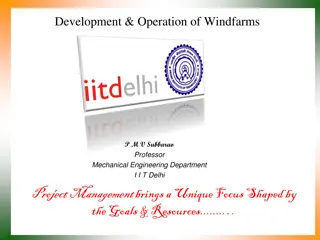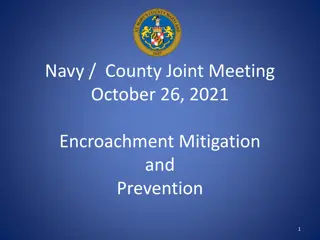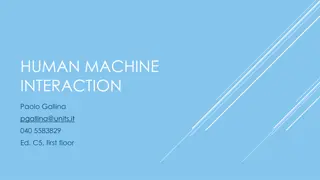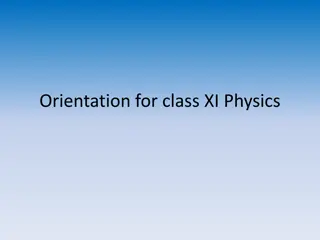Understanding ICT4D: A Comprehensive Overview
This content delves into various aspects of Information and Communication Technologies for Development (ICT4D), covering topics such as defining information and communication, the CIPSO view of ICT systems, different scopes of ICT, and different scopes of development. Richard Heeks from the University of Manchester provides insights on how ICT can drive progressive change in society and developing countries.
Download Presentation

Please find below an Image/Link to download the presentation.
The content on the website is provided AS IS for your information and personal use only. It may not be sold, licensed, or shared on other websites without obtaining consent from the author. Download presentation by click this link. If you encounter any issues during the download, it is possible that the publisher has removed the file from their server.
E N D
Presentation Transcript
Understanding ICT4D Session 1 ICTs for Development course
www.iwmi.cgiar.org/2013/09/who-can- you-call/; http://www.indianneurosurgery.com/; http://http Is this ICT4D? Richard Heeks, GDI, University of Manchester, UK Image sources: www.iwmi.cgiar.org/2013/09/who-can-you-call/; www.indianneurosurgery.com/; www.elfinancierocr.com/finanzas/Walmart-ofrecera-clientes- alianza-Credomatic_0_389361074.htm; www.alternet.org/economy/black-lives-still-matter
Defining information and communication Knowledge Information Data Richard Heeks, GDI, University of Manchester, UK Image sources: www.northcountrypublicradio.org/news/npr/165206203/in-rural-china-new-leaders-aren-t- familiar-faces; www.flhsa.org/regional-leaders-chart-new-directions-for-improving-community-health; www.stephencodrington.com/Hub/HK_Blog/Entries/2008/3/12_What_an_experience_in_Majiang!.html
CIPSO view of ICT system Wider information system Core information system Store Storage Retrieval Knowledge Process Data Capture Processed data Information SOURCE RECIPIENT Input Output Richard Heeks, GDI, University of Manchester, UK Adapted from Lucey (2005) and Laudon & Laudon (2016)
Exercise Richard Heeks, GDI, University of Manchester, UK Image source: www.indianneurosurgery.com/
Different scopes of ICT Any entity that processes or communicates data in any form ICT Scope 3: All ICT Any entity that processes or communicates data in electrical form ICT Scope 2: All electrical ICT Any entity that processes or communicates digital data ICT Scope 1: All digital ICT Richard Heeks, GDI, University of Manchester, UK
Different scopes of development Development Scope 1: agenda- specific development Development Scope 2: geography- specific development Development Scope 3: generic development Any progressive change in a society Any progressive change in a developing country Particular progressive changes in a developing country Richard Heeks, GDI, University of Manchester, UK
What is a developing country? Richard Heeks, GDI, University of Manchester, UK Image source: www.oecd.org/dac/stats/daclist.htm
Defining ICT4D Richard Heeks, GDI, University of Manchester, UK
Development paradigms Dominant phases of particular development paradigms 1950s 1960s 1970s 1980s Modernisation Growth as development Technology transfer Transfer of ideas/values Dependency Core periphery position within world system Breaking away Basic needs Focus on basic needs High degree of state intervention (agricultural policies, credit, etc.) Neo-liberalism Beginning of retreat of the state Focus on markets getting prices right 1990s 2000s 2010s Human development Multi-dimensional micro-credit, gender, environment, poverty, etc. Greater focus on participatory methods Post-development Idea and discourse of development as problematic Sustainable development Meeting current needs without compromising future needs; especially environment International development goals Millennium Development Goals Sustainable Development Goals Richard Heeks, GDI, University of Manchester, UK Adapted from: Ellis & Biggs (2001) and Heeks (2009a)
Exercise Look online to find the Millennium Development Goals (MDGs) and the Sustainable Development Goals (SDGs) and identify the ICT-specific targets within those goals. Richard Heeks, GDI, University of Manchester, UK
MDG 8F In cooperation with the private sector, make available the benefits of new technologies, especially information and communications. Richard Heeks, GDI, University of Manchester, UK
SDG 9C Significantly increase access to information and communications technology and strive to provide universal and affordable access to the Internet in least developed countries by 2020 Plus SDG targets that specifically identify ICTs in relation to: higher education scholarships (Goal 4 4B) women s empowerment (Goal 5 5B) innovation capacity (Goal 17 T17.8) Richard Heeks, GDI, University of Manchester, UK
Critiques of ICT4D Development paradigm Modernisation ICT role ICTs transferred from global North have a central role in delivering economic growth and new cultural values ICTs transferred from global North could be exploitative, and greater emphasis should be on local development of ICTs which would have a central role in delivering economic growth Dependency Neo-liberalism ICTs have an important role in connected enterprises and countries to local and global markets, and in increasing the efficiency of and delivering alternatives to the state ICTs are not central but locally appropriate digital applications could deliver social and other development outcomes for those on lowest incomes ICTs are not central but are carriers of discourse and sites for both exclusive and alternative approaches to development Human development Post- development Sustainable development ICTs are not central and can deliver either sustainable and just, or unsustainable and unjust development depending on the type of application Richard Heeks, GDI, University of Manchester, UK Source: developed from Prakash & De (2007) and Thapa & Saebo (2014)
Phases of ICT4D ICT4D 0.0 (1960s to mid- 1990s) PC database Issue/phase ICT4D 1.0 (mid-1990s to mid- to late 2000s) Telecentre ICT4D 2.0 (mid- to late 2000s onwards) Mobile phone Iconic technology Key application Data processing Content (& interaction) Consumers Services & production Innovators & producers ?Growth & development? Uptake & impact The poor Who? Key goal Organisational efficiency Technology's potential Government MDGs Key issue Readiness & availability Donors & NGOs Key actor All sectors Ignore Isolate Idolise Integrate Integrate Innovate Attitude Pro-poor Para-poor Para-poor Per-poor Innovation model Northern Dominant discipline Information systems Informatics/develop ment studies Tribrid of CS, IS and DS Development paradigm Modernisation Human development ?Development 2.0? Richard Heeks, GDI, University of Manchester, UK Source: Heeks (2009a)
Disciplinary foundations for development informatics Sociology Science/ Technology studies Organisation/ management studies Technology & development Information systems Development informatics Development studies Informatics Information science Communication studies Computer science Governance Economics Richard Heeks, GDI, University of Manchester, UK Source: Heeks (2010c)
Designreality gap model Information Information Technology Technology Processes Processes Objectives and values Objectives and values Skills and knowledge Skills and knowledge Management systems and structures Management systems and structures Other resources Other resources ICT4D system design Reality Gap Richard Heeks, GDI, University of Manchester, UK Adapted from Heeks (2002b)
